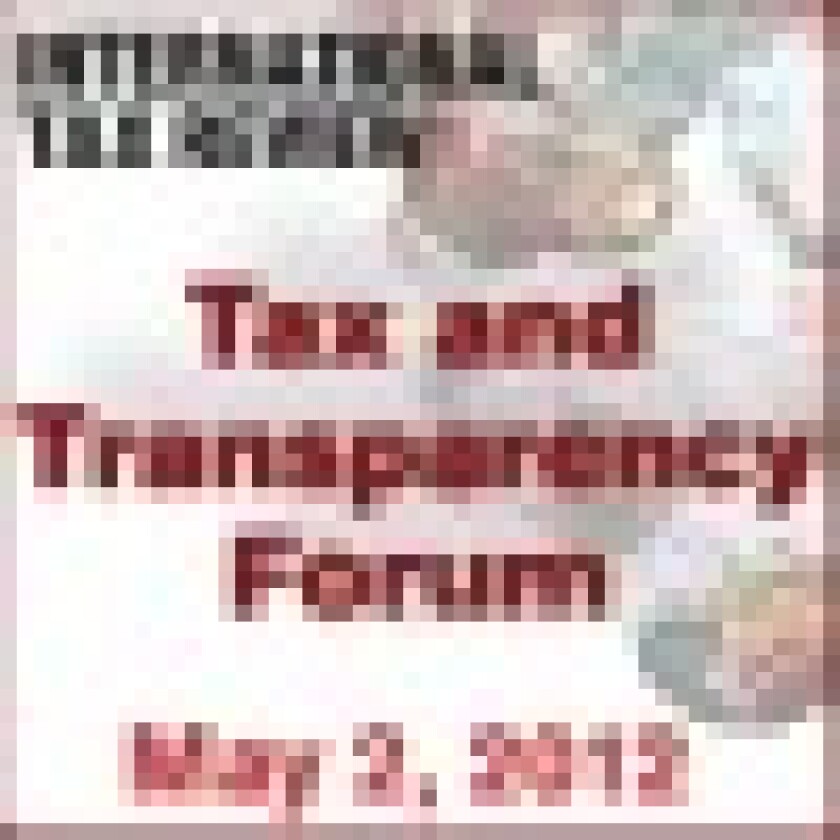At International Tax Review’s Tax & Transparency Forum in London on May 2, representatives from Reed Elsevier, Pelham Bell Pottinger, Save the Children, Christian Aid and Macfarlanes, will discuss the potential benefits of greater tax transparency for companies, where it fits into companies’ CSR agendas, and provide a view from business about the contributions companies make, and the importance of reputation after the financial crisis.
Panel moderator Joseph Stead, senior economic justice adviser at Christian Aid, says the desire to know more about companies’ tax policies and compliance is increasing from a variety of perspectives, one of which is “trying to better understand the role and contributions companies are playing in our societies”.
“This clearly gives the potential for tax to fit within the CSR agenda, but there appears to be no consensus so far on the best way to do this,” says Stead.
In the eyes of the public, social responsibility, good citizenship and so on are undeniably linked to payment of taxes, and the disclosure of Barclays using tax avoidance schemes exemplifies the reputational damage that can be sustained through exposure of shortcomings in this area.
David McNair, from Save the Children, will address the issue of trust between the public and businesses.
“The 2008 financial crisis marked a watershed where trust in business collapsed,” says McNair. “That lack of trust extends to firms’ corporate responsibility, seen by many as window dressing.”
“The demand for an ethical business model is now mainstream – a model which goes beyond contributions to charity, positive though that is – and extends to the fundamentals of the business model,” he adds.
James Henderson, managing director at Pelham Bell Pottinger, will analyse whether misunderstanding between parties on both sides of the debate is a factor that can be overcome, and how best this can be achieved.
“The big numbers bandied around ensure the issue is driven toward the top of the media and political agenda, but often there is misunderstanding among the public of how the processes involved work, or a lack of information available,” he says.
The panellists will turn their attention to addressing the following questions:
What information and how much information is disclosed. Will this lead to misinterpretation?
Who should bear the cost for this disclosure?
Should it be voluntary or legislatively bound?
The onus on tax reporting and communications regarding the management of tax affairs, and the need to be seen to be paying a fair contribution, all driven by pressure from media, pressure groups, civil society organisations and government, has given rise to many issues, says panellist Ashley Greenbank, head of corporate tax at law firm Macfarlanes, including:
How does a company balance these objectives with its obligations to minimise its tax burden?
What is a “fair” share if it is not the tax legally due?
Is the focus on tax reporting and communication really just a distraction from the real issue, that is, the tax rules themselves?
McNair will look at the issue of “tax morale” and how it impacts developing countries who need the right governance in place to “protect the poor and vulnerable and ensure the benefits are shared”.
“Corporate tax forms a significant proportion of tax receipts in developing countries,” he says. “But tax morale is also important – for others to be incentivised to pay tax, they need to see evidence that the big players are paying their way.”
The forum is free to attend for tax directors and NGOs. For a full programme and details of how to register, click here.










